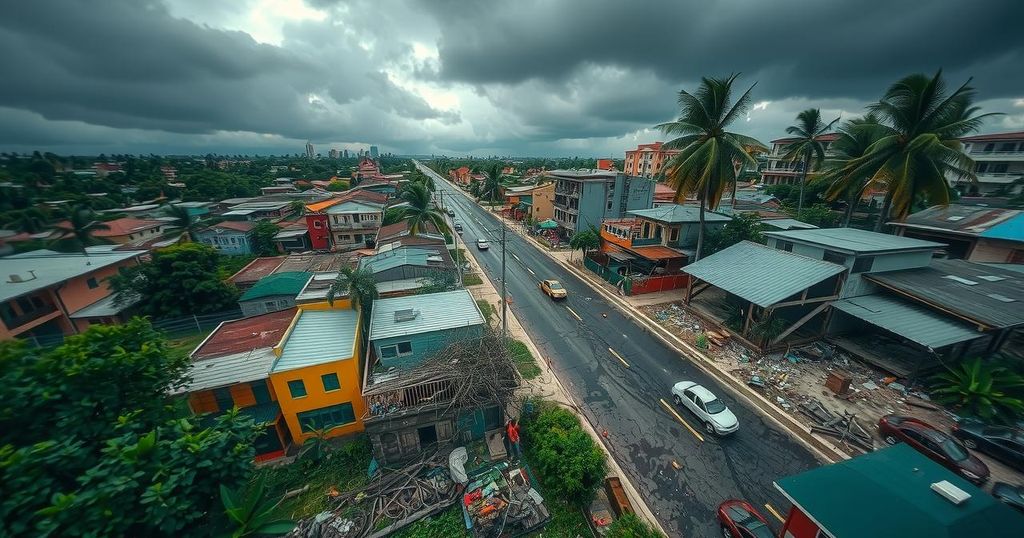Devastation Strikes Cuba Again as Hurricane Rafael Causes Widespread Power Outage

Cuba faces widespread power outages for the second time in two weeks due to Hurricane Rafael, which caused extensive damage across the island’s western regions. The hurricane left residents anxious about recovery efforts amidst ongoing economic struggles. As the 17th named storm of the season, Rafael underscores the increasing challenges posed by severe weather events, highlighting Cuba’s need for better disaster preparedness.
Cuba has experienced a second widespread power outage within two weeks following the destructive passage of Hurricane Rafael, which tore through the island’s western regions with powerful winds, wreaking havoc on crops and infrastructure. The National Hurricane Center reported the hurricane’s maximum sustained winds at 185 km/h, causing substantial risks of storm surges and flash floods across the nation. Following the storm, information was limited, with many Cubans left feeling anxious and disillusioned over their government’s capacity to respond effectively due to recent economic hardships. Residents from the capital, Havana, ventured out to assess the damage and found mostly dry streets, although the impact on local agriculture, particularly in the tobacco-growing areas, was severe. Agriculture Minister Ydael Perez Brito indicated that measures were taken to protect the substantial tobacco stocks in the region. Nonetheless, the aftermath of the hurricane led to a closure of businesses and schools, with a gradual resumption of transport services and grounded flights at key airports. President Miguel Diaz-Canel’s administration mobilized the military to assist in recovery efforts, emphasizing preparedness for future threats. Yet, the historical context of previous natural disasters, coupled with ongoing socio-economic challenges, left many feeling uncertain about the government’s ability to offer reliable services. Personal accounts from residents echoed despair, with individuals describing losses and fears regarding food spoilage resulting from the power outage. Furthermore, Hurricane Rafael is the 17th storm of the current hurricane season, which has been notably active, with predictions for an above-average continuation into 2024. This relentless hurricane activity reflects a concerning trend in recent years, highlighting the challenges faced by Cuba and its critical dependence on external economic relations for recovery and support.
The passage of Hurricane Rafael marks a troubling chapter in Cuba’s ongoing struggle with natural disasters, compounded by economic vulnerabilities and aging infrastructure. The context surrounding this event involves a series of hurricanes affecting the island, particularly given the high susceptibility of its infrastructure and housing to severe weather conditions. Cuba’s recent electricity issues stem from aging oil-fired thermoelectric plants that falter under pressure, highlighting systemic challenges the government faces amid severe weather patterns. The historical backdrop of governmental failures in resource distribution also plays into public sentiment regarding disaster management and recovery in Cuba.
In summary, the recent devastation inflicted by Hurricane Rafael delineates the ongoing vulnerabilities of Cuba’s infrastructure and the socio-economic strains exacerbated by frequent natural disasters. The island’s struggle with maintaining power and providing essential services following such storms raises pressing concerns regarding the government’s efficacy in crisis management. As patterns of increased hurricane activity become evident, there is an urgent need for improved disaster preparedness and viable economic strategies to bolster the nation’s resilience.
Original Source: www.aljazeera.com






